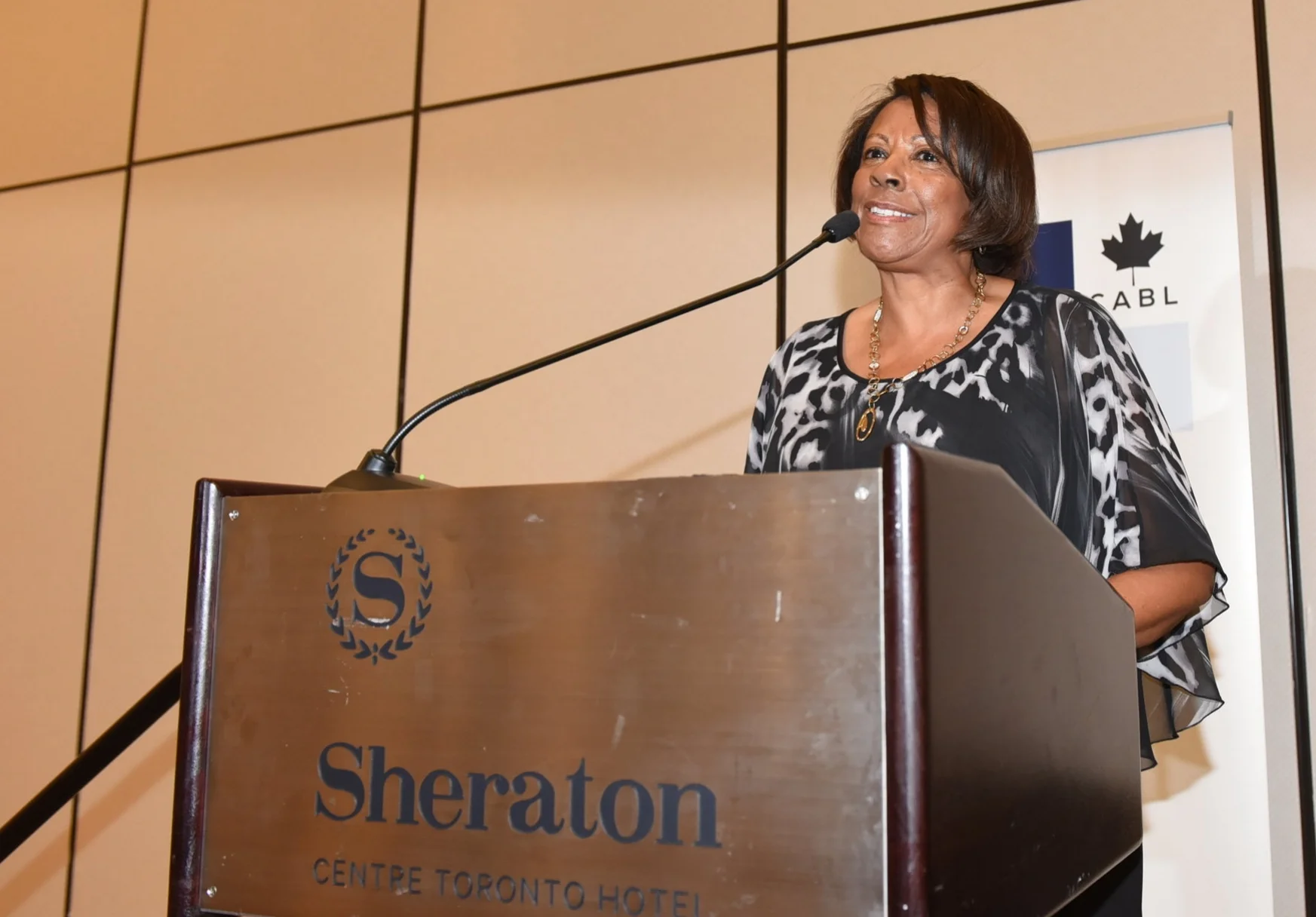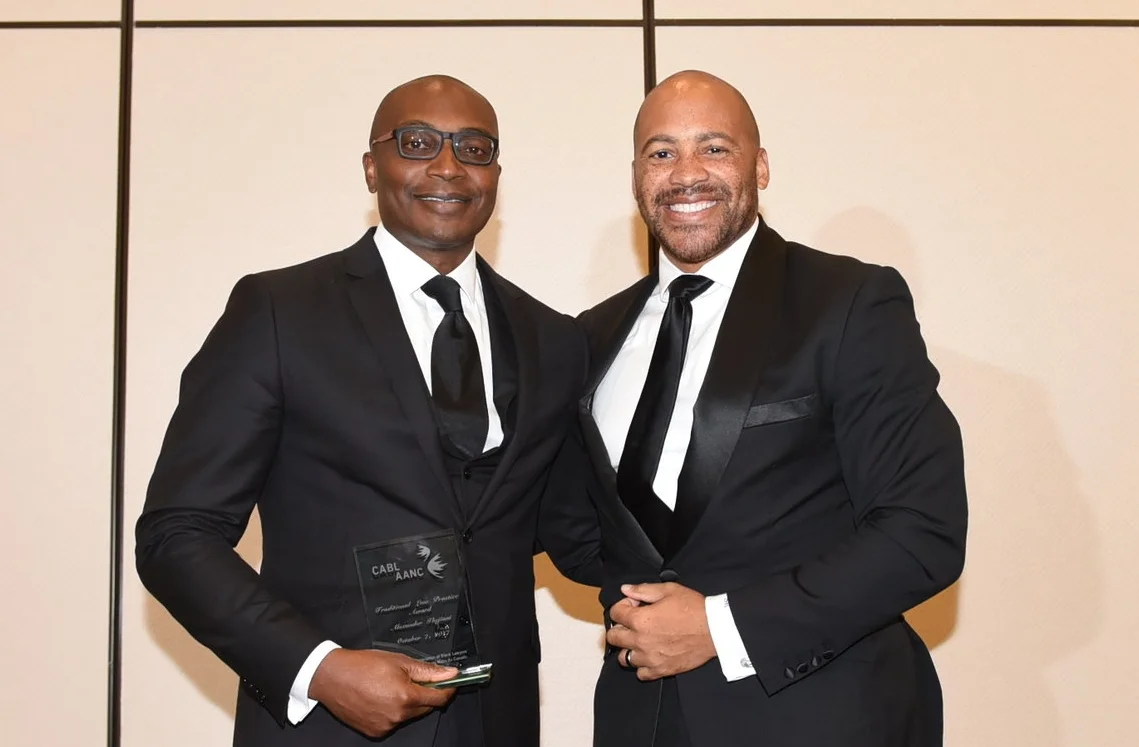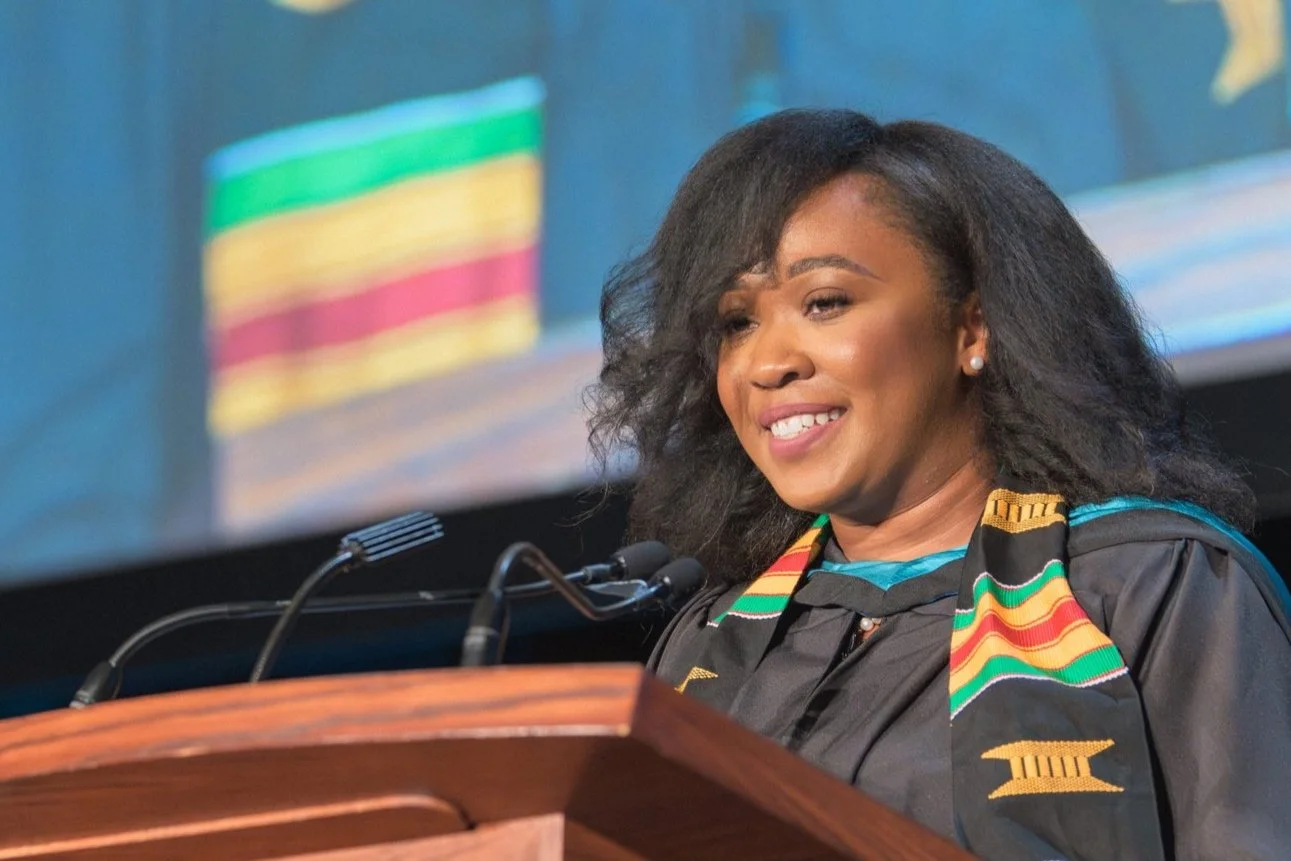Distinguished achievements in law celebrated
October 19, 2017
Nova Scotians were jubilant when Justice Corrine Sparks became the first coloured person in 1987 from that province to be appointed to the Bench in Canada.
Thirty years later, one of those cheerleaders – Alex Ikejiani – was in the same room with Sparks being celebrated for their distinguished achievements in law.
The provincial court judge was honoured for three decades of exemplary service while Ikejiani was the recipient of the Traditional Law Practice Award at the Canadian Association of Black Lawyers (CABL) 21st annual awards gala.
“Justice Sparks was one of my mentors,” he pointed out. “She was one of our legal giants who always maintained her dignity while helping us to strive for whatever we wanted.”
Graduating with his law degree in 1997 from Dalhousie University three years after obtaining his undergraduate degree from the University of Manitoba, Ikejiani works with the Department of Justice in Ottawa as a certified specialist in environmental law.
He was introduced to that branch of law after being offered a six-month contract to conduct environmental prosecutions on behalf of the Public Prosecutions Services of Canada.
“As I worked with these incredible scientists, I had great legal mentors,” he said. “But what really kept me in environmental law was the scientists who were my mentors in science. Most of my accomplishments were kind of steered by scientists. I knew nothing about science, but I had a number of committed and passionate individuals that taught me and moulded my perception of the environment, myself in the environment and the knowledge base of science and how that all interacts.
“When I look at it, I had a chance to look at a number of different areas like environmental protection and loss of habitat. I worked on these kinds of legislation, regulations and protection which were highlights for me. I also had the opportunity to work on some very polarizing issues as well and they included oil and gas, mining, aquaculture and climate change. The one thing that was taught throughout that time was the concept of science versus law.”
A sessional lecturer at the University of Ottawa Faculty of Law since 2003, Ikejiani dedicated the award to his late father, Dr. Okechukwu Ikejiani, who died in Ottawa a decade ago at age 90.
Coming to Canada from Nigeria at age 16, the family patriarch completed his undergraduate degree in 1942 at the University of New Brunswick, his Master of Science a year later at the University of Chicago and his medical doctorate in 1948 at the University of Toronto.
Before coming to Toronto, he was enrolled in the University of Michigan’s joint PhD and ScD programs where he worked in Professor’s Reuben Kahn’s serological laboratory. During his stay, the lab developed the Kahn Verification Test which established the optimum temperature for detecting antibodies to syphilis and tropical diseases.
After completing his doctorate, he returned to Nigeria and served as a pathologist, lecturer, medical director, refugee medical service co-ordinator and rehabilitation commission commissioner during the Biafra Civil War and ambassador plenipotentiary for Sierra Leone, Haiti, Jamaica, Guyana, Barbados, Trinidad & Tobago and Greece.
In 1971, the distinguished public servant came back to Canada and served as pathologist at Ottawa General Hospital, pathologist-in-chief and director of laboratories at Glace Bay and New Waterford hospitals, consultant pathologist at Sydney’s Regional Hospital, program director of the Glace Bay Accredited Medical Laboratory Technology Training and medical director at the Glace Bay Community Hospital.
CABL president Shawn Richard presented the Traditional Law Practice Award to Alex Ikejiani
“My father set the bar extremely high,” said Ikejiani who has been the lead counsel on several federal regulatory initiatives, including the drafting of eight Marine Protected Areas regulations under the Oceans Act which protect and conserve vast portions of Canada’s oceans. “In our culture, we have a celebration a year after a parent passes away. We mourn, we celebrate and we continue to celebrate. This is part of that celebration.”
The descendant of parents whose ancestry and heritage date back to the arrival of the Black Loyalists and Black Refugees as early settlers in Nova Scotia, Sparks has been a major advocate for the CABL which presented her with a Service Award in 1997.
“This organization has been and will continue to be a source of great pride to me,” she said. “It has fostered a deep role in my professional life and it, along with the National Bar Association, provided me with an outlet for the isolation and the racial animus I experience in Nova Scotia. It is never easy to be the first of anything. But with the CABL by my side, my career path became easier. This organization has helped me understand and deal with the manifestations of micro and macro aggressions in the workplace. It filled a void for me and many others in the legal profession.”
Sparks, who has a Masters in Law, said her three decades on the Bench have been filled with highs and lows.
“When one is the first, there are many testing grounds, but I have learnt that while there are those that are steadfast in their determination to hold on to the status quo, there are also those who have open minds and are committed and dedicated to tearing down the walls of racial inequality,” she said. “I realize more and more that eradicating inequality of any type is a process which goes hand in hand with the advancement of a society.”
Ten years ago, the Dalhousie Black Law Students Association launched the Justice Corrine Sparks Award to honour the trailblazer and celebrate students that are committed to using their legal education as a tool for change in their community.
The CABL made a donation to Sparks to sustain the scholarship program.
Co-founded by Sandy Thomas, Patricia DeGuire and Roger Rowe, the CABL has collaborated with the University of Windsor Faculty of Law to establish the Julius Isaac Memorial scholarship, recognized Black Bay Street partners, Canada’s Black judges and Black women who have positively contributed to law and the legal profession in Canada, honoured young lawyers and provided them with the inspiration they need to succeed in a demanding profession and made submissions on legal, equity and social justice issues to the federal and provincial governments.
Last January, Shawn Richard – who was called to the Ontario Bar in 2009 and is an associate at Lenkinski Law for the last three years – succeeded Donna Walwyn as the CABL’s president.
The rest of the executive comprises Rosemarie Mercury (vice-president), Esi Codjoe (secretary), Charlene Theodore (treasurer), Verlyn Francis (professional development director), Maureen Bennett Henry (membership director), Gordon Cudjoe (community liaison) and Laura Wilson (young lawyers’ division chair).







